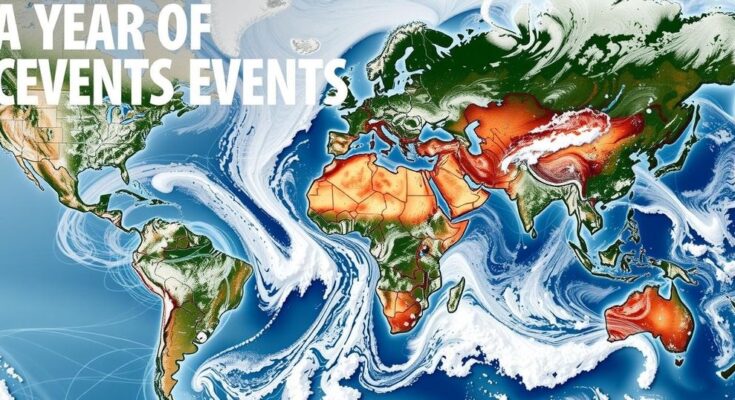In 2024, extreme climate events, including catastrophic floods in Brazil and Hurricane Helene in North Carolina, signal a potential record year for global temperatures, further emphasizing the critical relationship between severe weather and climate change as documented in recent photographs.
The year 2024 has witnessed unprecedented climate extremes characterized by catastrophic events from devastating floods in Brazil to the ravaging Hurricane Helene in North Carolina. As the year progresses, it is becoming evident that 2024 may conclude as the hottest year on record, with temperatures rising to alarming levels across the globe. These occurrences illustrate the far-reaching implications of severe weather events, often linked by scientists to the broader issue of climate change. The visual documentation of these events provides a stark reminder of the consequences of our changing climate, prompting essential discourse on preventive measures and collective action to mitigate future risks.
The impacts of climate change are increasingly manifesting through extreme weather patterns worldwide. Scientists have established a connection between these occurrences and the rise in global temperatures. Historical data has shown that as carbon emissions increase, so too does the intensity and frequency of extreme weather events. These phenomena not only disrupt daily lives but also wreak havoc on ecosystems, agriculture, and economies, underscoring the urgent need for comprehensive climate action to mitigate their impacts.
In summary, the events of 2024 serve as a critical reminder of the ongoing climate crisis, with severe weather presenting significant challenges globally. The connection between these extreme occurrences and climate change cannot be overstated, highlighting the urgent need for immediate and effective responses to safeguard our planet’s future. As we reflect on this year’s climate extremes, it is imperative that we consider sustainable practices and policies to avert similar crises in the future.
Original Source: e360.yale.edu




